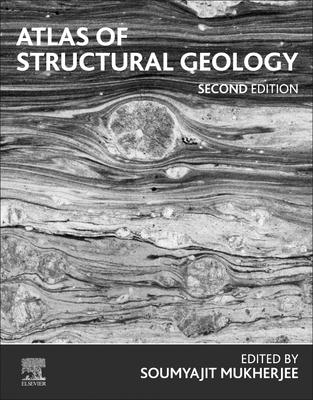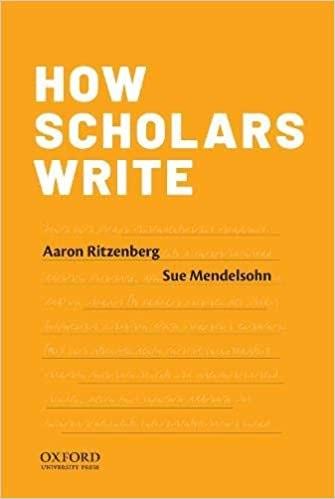V THE HEGIRA
Ancient Yathrib, commonly called Medina, was familiar to the Arabs as “the pleasing” city, for it lay in a fertile plain teeming with “green fields, running water, every blessing the Eastern mind can desire.” For ages it had been inhabited by expatriated Jews; but early in the fourth century two Arab tribes, the Aus and the Khazraj, settled there. But the Hebrew residents were much superior to the newcomers in general culture, in agriculture and wealth, and, it was darkly rumored, in the black art of magic; for the Pagan usurpers held to the primitive belief that the perfect man was one who could write Arabic, swim and shoot and not many of them could write Arabic. Jealousy of the more competent Jews, therefore, impelled the Yathribites to make war against them, and the sons of Abraham were decidedly disinclined to battle and bloodshed. Accordingly, having fought the Jews with very fair success, the two victorious clans had speedily decided to fight each other, with the result that Medina, for some generations, had been continually rent by tribal and civil wars. At present all parties were so tired of this everlasting strife that they had chosen one of the chief men among the Khazraj, Abdallah ibn Obei, to direct their fortunes; for the battle of Boath (616) had completely exhausted all the factions involved. Nevertheless, everybody was still dissatisfied, since it was feared that the truce was only temporary.
Now, for many centuries, despite one or two notable disappointments, the Jews had expectantly awaited the coming of a genuine prophet a longing that had been communicated, probably through racial miscegenation, even to the Aus and the Khazraj—and lo! the news of Mohammed’s ministry was already common knowledge at Medina. When the little troop of Medinese chanced to meet Mohammed at the sacred fair, therefore, they spoke thus with each other: “Know surely that this is the prophet with whom the Jews are ever threatening us; wherefore let us make haste and be the first to join him.” For it was clear that languishing Medina, long disrupted by internecine struggles, needed above all else a leader capable of harmonizing all discordant elements and balancing the scales of justice impartially for all—except, it might be, the Jews—a leader, too, who would introduce no dangerous foreign ideas, but whose vital beliefs were grafted on a common Arabian stock. Perhaps there was some truth in the saying of Mohammed’s childwife, Ayesha, that the battle of Boath had been engineered by Allah for the benefit of the Moslems.
So, when the Prophet thus addressed the visitors, “Sit ye down for a little, and I will speak with you,” they gladly obeyed. After he had explained the creed of Islam, with due emphasis upon his own part in it, he proceeded to narrate the dangers of his position at Mecca and next inquired what his prospects might be at Medina. They complimented him for his exalted rank, but expressed doubt as to his reception in their own embattled city. “If thou comest to us thus, we may be unable to rally round thee. Let us, we pray thee, return unto our people, if haply the Lord will create peace amongst us; and we will come back again to thee at this set time next year.”
So the men returned to Medina and quickly scattered the news of their marvelous encounter: would it not, they argued, be good business to claim the services of this very self-confident Messiah before he was appropriated by the waiting Jews, whose moneylending power held the mass of Yathribites in abject poverty?
This counsel appeared excellent to both the Aus and the Khazraj. After a year of troubled waiting on the part of Mohammed, his heart was gladdened at the sight of twelve men who arrived on the appointed day to welcome him as the anticipated saviour of Medina. This oath was then sworn to by all: “We will not worship any but the one God; we will not steal, neither will we commit adultery, nor kill our children; we will not slander in anywise; nor will we disobey the Prophet in anything that is right.” Mohammed was so swept away by the general tone of obedience in this statement that he apparently failed to notice the joker in the concluding clause; and thus the First Pledge, or Pledge of Women—so called because its lack of martial ardor made it the only vow required of female Moslems—was made. The twelve apostles at once returned and the propagation of the new religion was soon in full swing. At the request of the Medinese, the Prophet sent one Musab—once a connoisseur of gaudy clothes and delicate perfumes, but now a ragged, rampant Moslem—to instruct them in the more intricate matters of Islam. So tremendous was the zeal for proselytizing that the most strenuous efforts were made to secure converts: the newly saved souls covenanted that they would not speak to anyone who did not acknowledge the Prophet, and all idols, as well as idol-worshipers, were treated with the utmost severity. The salvation of one old fellow, who habitually bowed before a horrid image in his house, was particularly affecting. Young devotees cast the idol into a noisome well every night; but every morning he just as regularly hauled up, cleansed it, and again went through his genuflections. One day, however, they hitched the vile thing to a dead dog before tossing it in the well, “whereupon he abandoned his image and believed.” Before long new converts came in from every side with very little persuasion; for the Medinese were very human and, inasmuch as Islam was now all the rage, they wanted to be in the newest style.
While Medina was buzzing with these devout activities, Mohammed was otherwise occupied. Hemmed in by ever present
dangers, and hearing only vague reports of the conflagration that was sweeping Medina, he was constantly on tiptoe with hopeful yet fearful expectation. If his body was still held at Mecca, his unbridled imagination was free to range toward the beloved north, where both Medina and Jerusalem lay; and one morning he astounded his townsmen by declaring that, during the preceding night, he had performed his devotions in the Temple of Solomon at Jerusalem. The obliging Gabriel, he said, had borne him on a winged steed over Medina to the Temple; the Arabian Pegasus, however, did not pause long there, but continued his celestial journey until he had carried his passengers completely out of this world, to those ethereal realms of bliss where the Seven Heavens lie. Up and still up they flew, while the Prophet carefully noted the order of precedence of those prophets whose model he had proclaimed himself to be: Jesus and John were in the second or third—he was not quite sure which— Moses was in the sixth, while Abraham alone had the supreme distinction of residing in the seventh. There, at the apex of indescribable glory, Mohammed had entered the awful presence of his Maker, Who, after some rather pointless chit-chat, charged him to see that all Moslems should hereafter prostrate themselves in prayer toward the Temple of Solomon five times every day. When Mohammed concluded, the Koreish laughed him to scorn, and even a few of the faithful were somewhat flabbergasted; but Abu Bekr saved the situation by declaring that he did not doubt the truth of this tale, inasmuch as he had already swallowed far more improbable yarns related by the Prophet. Yet the veracity of his amply substantiated narrative rests upon two solid facts: from that day to this, all devout Moslems have continued to bow themselves five times daily in prayer; and sceptics may still see, upon the rock where stands the Mosque of Omar in Jerusalem, the identical print of the Prophet’s foot where he leaped upon the heavenly charger.
The year 621 glided peacefully away. Mohammed, occupied with thoughts of a glorious future at Medina, had lost interest in spreading the faith in Mecca; and the Koreish, deceived by his apparent inactivity, had largely ceased to trouble him. Musab eventually returned with a glowing account of the progress made at Medina; but the Prophet, whose caution was certainly no less pronounced than his courage, carefully guarded his enthusiasm until more definite proofs were at hand. They soon came. In March, 622, the date fixed for the second conclave, seventy-three Medinese came in obedience to the promise made in the preceding year.
This occasion was so profoundly important that Mohammed took an infinitude of pains to conceal it—even his trusted intimates did not know about it beforehand. The Prophet, accompanied only by his wealthy and trustworthy uncle Al-Abbas, met the delegates at dead of night in a secluded glen. Al-Abbas diplomatically broke the ice by stating that, while his wonderful nephew was happy, safe and contented in Mecca, he nevertheless preferred to establish himself at Medina—in case ample security for his safety were assured. To this harangue Al-Bara, leader of the visitors, replied: “We have listened to thy words. Our resolution is unshaken. Our lives are at the Prophet’s service. It is now for him to speak.” Then Mohammed, beginning loftily as he always did by chanting long passages of the Koran, finally descended to the earth and informed them that he would be gracious enough to confer the boon of his presence upon Medina if its inhabitants would make an irrevocable vow to defend him, even as they would protect their nearest and dearest. A confused jargon of voices arose, eagerly assuring him that his person would be guarded at any cost. Al-Abbas, frightened almost out of his skin, breathed: “Hush! There may be spies abroad,” and in low tones requested them to plight their faith. The chief replied, “Stretch out thy hand, O Mohammed!” He did so; and Al-Bara, followed by all the rest, struck his hand upon the Prophet’s in token of fealty. This was called the Second Pledge, since it included an
oath to fight for the Prophet, and the touching of his holy hand—an honor never given to the generality of women. The assembly then silently broke up.
Such a large body of men could not gather so close to Mecca, however, without rumors leaking out. Next morning the mistrustful chiefs of the Koreish called upon the visitors and informed them that their presence warranted the suspicion that they were interfering in the politics of Mecca—an act that virtually amounted to a declaration of war. The Medinese did the only possible thing: they replied that the Koreish were wholly mistaken, and the slow-witted Meccans were ingenuous enough to believe them. But the clever Yathribites had barely departed in high glee when the Koreish learnt the facts, and set out upon a vain pursuit. Thus foiled, the enraged Koreish at once vented their spleen upon the believers, to whom the Prophet accordingly gave this command: “Depart unto Medina; for the Lord hath verily given unto you brethren in that city, and a home in which ye may find refuge.” Early in April the migration commenced, in parties of twos and threes, while the baffled Koreish looked on in stupefied amazement; for the number of clans that were involved in the movement prevented any concerted hostilities, since no one had the right to interfere in private family matters. By force or guile, however, they succeeded in corrupting some of Mohammed’s coadjutors who were weakest in faith or family ties; but the great body of Islam—now numbering probably close to two hundred souls —got safely away. A royal welcome awaited them, for the Medinese converts, flushed with their novel fanaticism, bestowed every imaginable honor upon the refugees—one zealot even went so far as to offer his guest one-half of his property, and also added a special bounty in the shape of one of his wives.
But Mohammed, together with his family and the household of Abu Bekr, still lingered. He informed Abu that “his time was not yet come; the Lord had not as yet given him the command to emigrate.”
Whether or no the Prophet’s decision to tarry was determined on account of a genuine desire not to leave the burning ship before all the passengers were safe, or because he cannily awaited further proofs from the Medinese before trusting his skin to them, must forever remain a matter for indulgent speculation. But in the middle of June he received the fearful intelligence that the Koreish intended to visit him. Their purpose is uncertain. It has been surmised that they had decided to assassinate him—for if, like Cæsar, he were to be pierced with swords driven home by representatives of every tribe, his weak clan would have to be satisfied with blood-money instead of blood-vengeance—to imprison him, to ostracize him, or to do no man knows what. That Mohammed himself was not privy to their intentions is indicated by this passage from the Koran: “And call to mind when the Unbelievers plotted against thee, that they might detain thee, or slay thee, or expel thee. Yea, they plotted, but God plotted likewise. And God is the best of plotters.” Tradition states that Gabriel informed the Prophet of the malignant design; he at once told Ali to lie upon his bed, then went forth, and simultaneously greeted the evil-comers with a handful of dust and this excerpt from the Koran, “And We have covered them so that they shall not see.” For, indeed, the best of plotters had wrapped Mohammed in a cloak of invisibility; he therefore escaped undetected while the murderous men lay in wait, thinking that the silent figure on the bed was the Prophet until the morning light apprised them of their sad error. It seems more likely, however, that Mohammed merely threw his deceptive red mantle over the recumbent Ali, and then slipped out of the back window to join the trembling Abu Bekr, who wept joyous tears now that his superior had at last decided to leave Mecca.
For the next three days, the two men lay in concealment in a neighboring cave, while the distracted Koreish feverishly sought everywhere for them. The house of Abu Bekr was searched, but when his daughter Asma was asked, “Where is thy father?” she innocently replied, “Truly, I know not where he is”—whereupon Abu
Jahl, a ferocious and impudent fellow, “slapped her on the face with such force that one of her earrings dropped.” Meanwhile the two outcasts lurked in the secrecy of the cave, across whose entrance, we are informed, a divinely commissioned spider wove a protecting web; yet legends are often more industrious than spiders. Abu Bekr would shake with fear and breathe the low whisper, “What if one were to look through the chink, and see us underneath his very feet?” to which the Prophet would boldly reply: “Think not thus, Abu Bekr! We are two, but God is in the midst a third.” Yet Mohammed loved Abu “more than all the world; he held no one equal unto him,” sang the poet Hassan; and the generally taciturn and morose Prophet, listening to the song, was pleased and laughed so heartily that he held his sides and his back teeth became visible. “Thou hast spoken truly, O Hassan!” he remarked after he had recovered his breath, “it is just as thou hast said.”
After three days had passed without their detection, it seemed safe to speed toward Medina. The careful Abu Bekr had fetched a purse, bulging with thousands of gold pieces, as well as two of his best camels; and, probably on the night of June 20, they mounted the beasts—Mohammed taking care to choose the swifter one, AlKaswa—and started on the perilous journey. The two-hundred-odd miles that they must traverse extended over a parched, barren, inexpressibly desolate and mournful waste, where only such rugged trees as the tamarind and acacia could exist, where phantom mirages mocked the eye, and all nature was but a ribbed and menacing skeleton. They traveled chiefly at night, resting during the sweltering heat of the day and buying provisions from such scattered Bedouins as they chanced to encounter. Abu Bekr, who was well known to most of these desert dwellers, was frequently asked who his friend was, and he regularly made the answer, “A guide to lead me,” while the diplomatic Prophet kept a strict silence.
At length, after eight days of doubt and deprivation, they came in sight of Medina; but the wary Mohammed had no intention of trusting himself to the city before he knew exactly how things lay. “Lead us,” he said to the guide, “straight to the Beni Amr at Koba, and draw not yet nigh unto Medina.” This overscrupulous vigilance turned out to be unnecessary, for rumors of his approach had set the city agog with delight; and every morning a band of converts and refugees had posted themselves on a hill to watch his arrival. On this morning one of them, catching sight of the travelers as they trudged toward Koba, raised the rapturous shout: “Ho! he has come! he whom we have been looking for has come!” The marvelous news flew from tongue to tongue, and everybody rushed forth to Koba to greet the majestic guest. Even the children cried out: “Here is the Prophet! He is come! He is come!” while a great crowd surged around him and made profound obeisance. Then Mohammed knew at last that he was safe among friends. He had escaped from Mecca, where the Koreishite swords might have altered the course of events for all time; but the otherwise dull and sluggish Middle Ages were fated to be infinitely enriched by the romantic contest between the Crescent and the Cross. “Ye people!” he courteously proclaimed, “show your joy by giving your neighbors the salutation of peace; send portions to the poor; bind close the ties of kinsmanship; and offer up your prayers whilst others sleep. Thus ye shall enter Paradise in peace.”
III
To make the assurance of a safe entrance to Medina doubly sure, however, Mohammed lingered four days at Koba. Even then he took no dangerous chances, for he requested the Medinese descendants of his revered great-grandmother, the spouse of Hashim, to attend him into the city; and in the meantime he had slept only when some of his most trusted underlings kept watch. These super-precautions
proved to be needless, for tribe after tribe came flocking forth to see which could outdo the other in paying reverence to him. On every hand rose the earnest request: “Alight here, O Prophet! We have abundance with us, means of defense and weapons and room. Abide with us!”—and many suppliants emphasized their requests by seizing the halter of Al-Kaswa. On this occasion Mohammed’s superb political ability was again evidenced. He would show no favoritism, but, by means of a camel and an omen—both inexpressibly dear to every Arab’s heart—he would choose his abode by supernatural means. To all these fervent ejaculations he replied: “The decision rests with the camel; make way for her; let her go free.” So AlKaswa, unguided by rein, moved forward until she entered the eastern section of the city, where, seeing a few date-trees in an open courtyard, she quite naturally ambled toward their grateful shade and awkwardly sat down. And in this way was the site for the Mosque chosen—the famous Mosque where, for the remainder of his days, the Prophet dwelt, married, prayed, preached, emitted new revelations, planned his schemes of conquest, greeted his friends, and uttered maledictions against his foes; where, also, he sickened, died and was buried. Yet certain abominable sceptics have intimated that Mohammed knew beforehand that this particular spot was already hallowed as a place of prayer, and that the rein of Al-Kaswa’s halter was not so very slack after all.
The Prophet at once negotiated to buy the sacred site. Its owners wished to make him a present of it, but he would not stoop to accept it as a gift; accordingly, it was purchased with ten gold pieces from Abu Bekr’s wallet. For seven months Mohammed lived in the lower story of an adjacent house, owned by Abu Eiyub, while the construction of the Mosque, with its adjoining apartments for himself, went on. His bodily wants were provided for by the citizens, who contended with each other for the honor of sending him the choicest viands they could procure. As might be expected, Abu Eiyub was exceedingly solicitous for the comfort and safety of his
distinguished roomer. Once, when a water-pot was accidentally broken in the upper story, Abu and his wife quickly sopped up the water with their clothes, and then rushed down to Mohammed’s apartment in great fear lest a drop or two might have defiled his garments. Meanwhile the building of the Mosque was pushed at full speed. The Prophet himself joined heartily in the work, thus stimulating all his helpers to increase their efforts, and united with them in their labor-lightening song:
“O Lord! there is no joy but the joy of futurity.
O Lord! have mercy upon the Citizens and the Refugees!”
All this led to a spirit of fellowship between these two classes, and, in order that the union might be made more firm, Mohammed, after first setting the example, paired off individuals in each. “Become brethren every two and two of you,” he gently commanded, and it was done.
One danger, unforeseen even by the perspicacious Prophet, soon threatened the refugees. The climate of Mecca, while excessively hot, was dry and salubrious; but, though Medina’s altitude was unusually great, her drainage paradoxically enough was very poor, and the noxious exhalations from her stagnant water, abetted by intense heat at day and intense cold at night, soon prostrated large numbers of the refugees with fever. This misfortune so dampened the enthusiasm of many that, in their frenzied delirium, they would moan out their desire to go home. When Mohammed heard of this, he looked upward and raised this prayer: “O Lord! make Medina dear unto us, even as Mecca, or even dearer. Bless its produce, and banish far from it the pestilence!” But, for some inscrutable reason, Allah, the Hearer and the Answerer of Prayer, remained deaf for a time; and at one period Mohammed was one of the very few persons who were able to stand during prayers. When, however, he informed the recumbent invalids that “the prayer of one who sits is
worth only half the prayer of him that stands,” they all made desperate efforts to rise.
Nevertheless, the first few months at Medina were on the whole happy and auspicious. The elements of disaffection that lurked among the Jews and the unbelievers bided their day; the refugees and the citizen converts, or allies, gladly rushed to fulfill the smallest desire of the Prophet, whose fascinating personality completely charmed his friends and even intrigued his enemies—for a time. Who could resist the appeal of a man who gracefully bestowed names of good omen upon converts previously burdened with inauspicious Pagan titles, and who dignified those of his subordinates who were enslaved in the ignoble calling of “hucksters” by altering the forbidding word to “Merchants”? In an excess of praiseworthy devotion, they quaffed the sacred water in which the Prophet had bathed, and piously treasured his hairs and nail-parings as charms and forget-me-nots. And Mohammed, ever extraordinarily swift to take hints, soon formed the habit of wrapping up these personal relics and bestowing them upon new converts as a peculiar evidence of his esteem.
While his worshipers thus fawned and his foes maintained an ominously quiet peace, the Prophet calmly assumed the attributes of a sovereign and sacerdotal office. As self-appointed ruler of the city, he exercised the right of deposing and selecting whatever chiefs he desired; as priestly dictator of all Islam, he established those multitudinous rules and ordinances that still defy the assaults of time. Motivated probably by a statesmanlike, if rather cautious, wish to win or at least placate the Jews, he inaugurated a complicated system of devotion based principally upon the famous precepts that had been given to Moses. The detractors of Islam have so exaggerated its largely fictitious sensuality that its rigorous rites have too often been forgotten: its lustrations, its fastings, its prodigality of genuflections. The business of lustration, for example,
was very complicated. Before prayer the Moslem must wash his face from the top of the forehead to the chin and sideways as far as both ears, bathe his arms and hands as far as the elbows, and cleanse his feet as far as the ankles; and all this must be done in the strictest silence, broken only by such prayers as the votary might think appropriate. While scrubbing his teeth, he might say if he chose: “Vouchsafe, O Lord, as I clean my teeth, to purify me from my faults, and accept my homage, O Lord! May the purity of my teeth be for me a pledge of the whiteness of my face at the Day of Judgment.” If, through a momentary lapse into sin, the hapless believer had defiled his body, he thus washed away his iniquity: three successive times he poured water upon his right and left shoulders, and a like number of times on the top of his head; and should one hair on the entire body be left untouched, the act of purification was wholly vain.
The Prophet also instituted various fasts which, with certain alterations, have also endured. These fasts were, if possible, even more laboriously meticulous than lustration. While abstaining from food and drink, the Moslems must take the most scrupulous precaution to see that absolutely nothing entered the body. If they smelled perfumes, bathed, or carelessly swallowed their spittle, the fast was broken; the most ardent disciples would not even open their mouths to converse, for fear of inhaling too much air; and, if a thoughtless faster allowed a particle of food, no matter how small, to become wedged between his teeth, he was deemed to be a backslider from the faith.
December was for a time annually sanctified by fasting, and several rather diverting details followed. In the first place, most of the Moslems took the responsibility with such complete and abject seriousness that they unintentionally disturbed the Prophet’s slumbers. Very late one evening they came to the Mosque for the service of prayer; and, observing that Mohammed was not on hand,
they approached his house and coughed loudly before the door. The Prophet, now thoroughly aroused, came forth and addressed them thus: “I have observed for some days your coming for the nightly prayer at the Mosque, until I feared that it would grow by custom into a binding ordinance.... Wherefore, pray ye at eventide in your houses.” He then returned to resume his interrupted repose; but a further trouble awaited him. His humble supporters, it appeared, were obsessed with the monkish idea that they should abstain from every conceivable pleasure during the whole month; but Mohammed was too wise to permit such immoderate asceticism. Allah, it was soon revealed, “willeth not for you that which is difficult.... It is lawful unto you, during the nights of the Fast, to consort with your wives. Now, therefore, sleep with them, and earnestly desire that which God hath ordained for you; and eat and drink until ye can distinguish a white thread from a black thread, by the daybreak. Then keep the fast again until night.... Thus God declareth His signs unto mankind, that they may follow Piety.” The consequent popularity of the fast, indeed, brought new adherents to Islam in great abundance, until an unforeseen contingency arose. Abstinence from food and drink during the short days of December caused little difficulty; but the Prophet, trusting in that quaint omniscience which universally attends the assumption of prophetic robes, introduced an intercalary system based upon the lunar months. The sacred month, therefore, gradually shifted from winter to summer, when the sixteen-hour days made what had previously been a pleasure a great burden; nevertheless, Mohammed persevered in his oddity, for to have done otherwise would have impugned his infallibility. So his faithful zealots groaned and were troubled, and longingly anticipated the new moon, when the fast was joyously broken by the bestowal of alms upon the poor and the resumption of normal bodily activities.
Five times a day the believers, no matter how pleasantly occupied, must turn to prayer: at dawn, at midday, in the afternoon,
at sunset, and at the coming of complete darkness. On six days these devotions could be performed anywhere, though preferably in congregation at the Mosque; but every Friday the Moslems, unless detained by extraordinary causes, were commanded to worship in a body at the Mosque. The ever efficient Gabriel informed Mohammed of Allah’s desire that the time for each prayer should be announced by a crier, who must shout: “GREAT IS THE LORD! GREAT IS THE LORD! I bear witness that there is no God but the Lord: I bear witness that Mohammed is the Prophet of God. Come unto prayer: come unto salvation. God is great! God is great! There is no God but the Lord!” So Mohammed instructed his negro servant, Bilal, to be the public crier; and early every morning Bilal would clamber upon a high house and rouse the slumbering Moslems with these words, adding this salutary invention of his own: “Prayer is better than sleep! Prayer is better than sleep!” Then, climbing down from his lofty perch, he would approach Mohammed’s door and shout: “To prayer, O Apostle of God! to salvation!”
At the special Friday service, the Prophet ascended the pulpit, gave a stereotyped salutation of peace, and then seated himself while Bilal shouted the stentorian summons to prayer. Descending from the pulpit, Mohammed then led the prayers; reascending, he delivered one or two exhortations. The assembly, fixing their rapt glances on his earnest gesticulations, would swallow every word and at the end join in a loud “Amen!” or something like it. When all was over, his mantle of striped material from Yemen, and his girdle of splendid Oman cloth, were carefully folded up and laid away until the next service. The pulpit itself was soon endowed with an awful sanctity. Disputes were settled at its base; and should anyone take a false oath in its presence, “even if the subject were as insignificant as a toothpick”—and toothpicks were not wholly unknown in Islam— he thereby doomed himself to eternal damnation. Before it had been built, Mohammed had supported himself during his sermons by leaning on a post—an object of which he grew so fond that, after it
was no longer needed, he commanded it should be interred beneath the pulpit. The post itself reciprocated his touching sentiment; for, when it was abandoned, it moaned loudly and would not stop until the Prophet placed his hand upon it, whereupon its grief was assuaged.
VI
HOLY WARS I
Though Mohammed was now actually the spiritual and nominally the temporal ruler of Medina, his position nevertheless was very precarious. The Jews, while completely deficient in martial valor, were openly contemptuous of his prophetical jurisdiction, and the Khazrajite leader, Abdallah ibn Obei, showed overt defiance against his assumption of civil power. Presumably because he feared and respected Abdallah’s influence, the Prophet took pains to treat him with every courtesy; but the compliment was not returned. One day, when Mohammed chanced to observe his rival seated at ease in the cool shade of his house, he alighted from his steed, graciously saluted the sitter, recited some of the most affecting passages in the Koran, and finally invited him to adopt the faith. Abdallah listened composedly until the long harangue was ended; then he spoke. “Nothing could be better than this discourse of thine, if it were true. Now, therefore, do thou sit at home in thine own house, and whosoever cometh to thee preach thus unto him, and he that cometh not unto thee refrain from troubling him with that which he dislikes.” He also casually mentioned the fact that he objected to the smell of the beast that Mohammed bestrode; so the Prophet went on his way, sorely stricken in spirit.
In other ways, too, he was equally unfortunate. His fabulous rise from the lowly state of an insignificant trader to the pinnacle of fame
appears to have induced him to overestimate his powers; at any rate, soon after his arrival at Medina, he betrayed his ignorance of the simplest facts of Arabian agriculture by forbidding the artificial fecundation of palm trees, with the result that they became almost barren. But when his egregious error was pointed out, he manifested a wisdom rare in prophets by candidly admitting that he was in the wrong. “I am only mortal,” he confessed. “If I give you an order in the domain of your religion then receive it; but if I give you an order from my own opinion then am I but mortal.” In the near famine that had resulted from his bungling interference, there was poetic justice in the fact that he, as well as the rest, could eat only one date per day; yet he gladly shared in the stringent privations that all were forced to endure. While his own face was pinched with hunger, he divided with the most needy Moslems the gifts of food which various people had sent him; on one occasion he was glad to accept a Jew’s offer to partake of a meal of rancid fat and barley bread; and for months, during the dead of winter, he went without any fire on his hearth.
It was obvious that such a state of affairs could not be permitted to continue. No matter how strong the already sorely tried faith of his partisans was, it would not forever withstand the shocks of rampant famine and naked, shivering misery; then too, and even more vital, was the consideration that new converts could never be won over to such a ragged and unkempt faith—Islam would not grow. And other even more subtle ideas were fermenting in Mohammed’s ever restive mind. He, the one and only Prophet of the Most High Allah, was a starving outcast because of the pernicious activities of the overbearing, wealthy and rather cowardly Koreish, whose teeming caravans pursued their unmolested way northward from Mecca, between Medina and the Red Sea, to Syria. But the destitute refugees were pledged to advance the banners of Islam not merely in defensive, but, if Allah so willed, in offensive war; and should any of them see fit to remind him that, in earlier days, he had
instructed them not to retaliate against their enemies, he could—and did—allay their squeamishness with a revelation. Furthermore, his henchmen had already been subjected, by chance or design, to a strenuous discipline that had inured them to endure such hardships as a career of pillage and guerrilla warfare would entail. Rigid religious fasts had accustomed them to withstand hunger and thirst; at the daily public salat, or prayer, they had been drilled to stand in rows, to perform what amounted to tough gymnastic exercises, and to expect celestial condemnation unless they scrupulously obeyed the minutest requirements of these incessant manœuvers. The successful plundering of opulent Koreishite caravans—which, under the circumstances, might reasonably be expected—would accomplish four excellent results: it would put a summary end to the ubiquitous suffering at Medina; it would provide a more than adequate outlet for the explosive zeal of his backers; it would conclusively demonstrate the prowess of Islam, thereby winning new members to the fold; and it would enable Mohammed to exult over the salutary discomfiture of his despicable foes.
How clearly defined these or other considerations may have been in the mind of the outstanding Oriental of the seventh century, it would be presumptuous for a twentieth century Occidental to say; the fact remains, however, that such were the results attained. Brahminism, Buddhism and Confucianism waxed slowly great through renunciation, inertia and mystical contemplation; but Jehovah and Allah were made of sterner stuff. It seems probable that, despite the peaceful creed and practice of its founder, Christianity would never have become a serious rival of other worldfaiths had it not been for the implacable swords of Constantine and Charlemagne; but Islam was fortunate from the beginning in that its inventor entertained no silly scruples about blood-letting. The Crusades, the French Revolution, and Cromwellian Puritanism were attended by an amount of sadism that may well make one pause
before too severely condemning the blood-mania and sex-obsession that mark every stage of Islam’s triumphant progress.
Thus it happened that, from December, 622, until October, 623, the Prophet sent six separate expeditions against the Meccan caravans. The first three were entirely unsuccessful, notwithstanding the fact that Mohammed presented the leader of each one with a white banner mounted on a staff; but the fourth, led by the Prophet himself, was marked by a momentous incident. Though he failed to capture his prey, he made some sort of offensive and defensive alliance with the idolatrous tribe of Banu Damrah; and, apparently lest he might be rightly criticized for making friends with unbelievers, he justified his action in the only acceptable way—by a revelation. “It may be that Allah will bring about friendship between you and those whom you hold to be your enemies.... Allah does not forbid you respecting those who have not made war against you on account of (your) religion, and have not driven you forth from your homes.... Allah only forbids you respecting those who made war against you on account of (your) religion, and drove you forth from your homes....” It may be surmised that the Prophet, himself an excamel-driver familiar with Bedouin ways, was moved to speak thus by two considerations: desert tribes that subsisted principally by plunder would be quick to appreciate the desirability of linking themselves with a faith that sanctified theft here and promised Paradise hereafter; besides, a successful assault on Koreish merchandise could hardly be made without the acquiescence or assistance of the tribes through whose territory that merchandise passed.
The fifth expedition was fruitless, but the sixth brought about alliances with several seashore clans; and a seventh one led not only to the first actual bloodshed, but to an even more striking innovation. Two days before the end of the sacred month of Rejeb, Mohammed sent eight men forth and gave their leader sealed orders
which were not to be opened until after a two days’ march. By a mere coincidence or by a sly design of the Prophet, the document was thus read, according to instructions, on the last day of Rejeb. After commanding the leader not to force “any of thy followers against his inclination,” it ordered him to lie in wait for a Meccan caravan. Faced by the dilemma of fighting when strife was taboo, or of delaying until it would be too late to overtake the Koreish travelers, the Moslems summarily solved the problem by shooting an arrow through one of the Meccans and returning to Medina with the booty. Then, to their utter dismay, Mohammed rose up, “his face red with anger,” and declared, “I never commanded thee to fight in the Sacred month.” Yet it is curiously interesting to note that this heavenly message soon appeared: “They will ask thee concerning the Sacred months, whether they may war therein. Say: Warring therein is grievous; but to obstruct the way of God and to deny Him, to hinder men from the Holy temple, and to expel His people thence, that is more grievous with God.”
Thus, through blind caprice or far-seeing, statesmanlike duplicity, the way was opened for bloodshed on a grand and wholly unrestricted scale. Nine centuries before Machiavelli, and eleven before Napoleon, the Prophet of Islam formulated this dictum: “War after all is but a game of deception.” Deception of several kinds, that is to say: one’s foes should be openly cursed and belittled while privately they were respected and even feared; one’s followers should be assured that martial ardor was the best of all possible virtues and that death on the field of honor was a matchless boon. “The sword,” Mohammed declared, “is the key of Heaven and Hell; a drop of blood shed in the cause of God, a night spent in arms, is of more avail than two months of fasting or prayer; whosoever falls in battle, his sins are forgiven; at the day of judgment his wounds shall be resplendent as vermilion, and odiferous as musk; and the loss of his limbs shall be supplied by the wings of angels and cherubim.” The Koran of this period teems with frightful maledictions against













